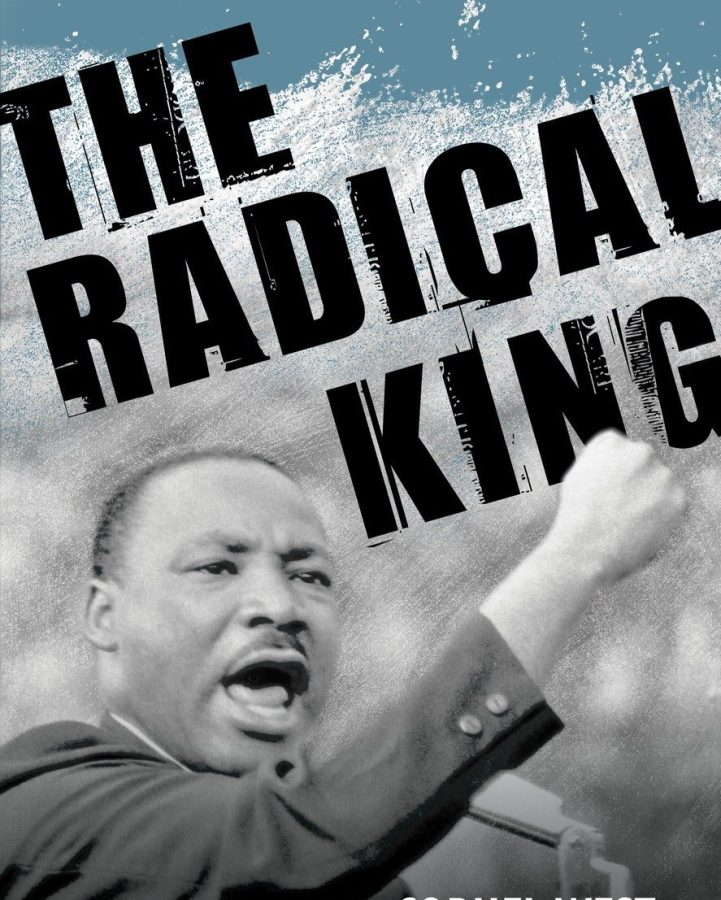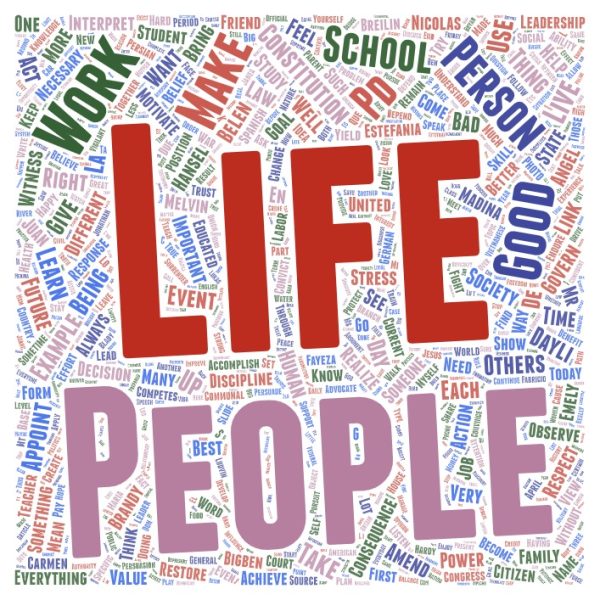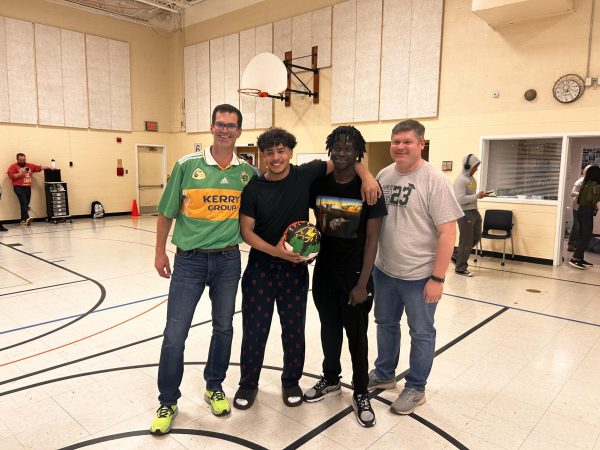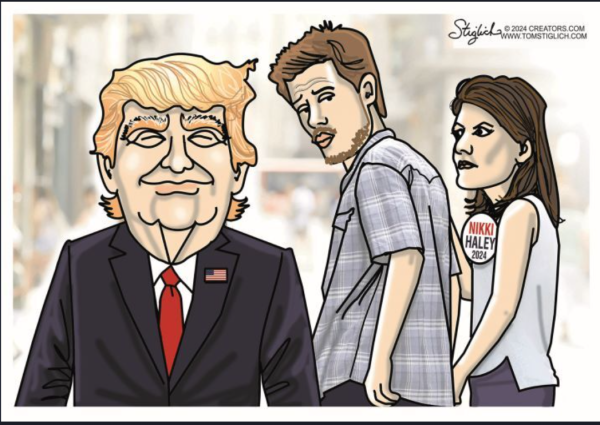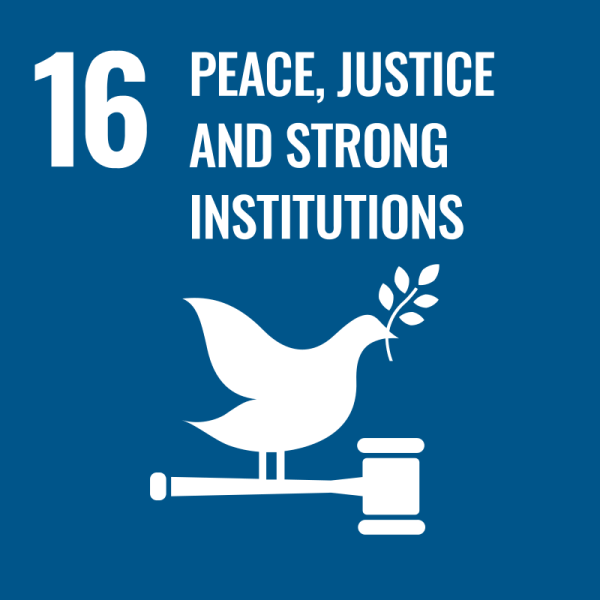The Neglected Legacy of Martin Luther King Jr.
“I have a dream that one day little black boys and little black girls will be able to sit together at the table of brotherhood. . .”
“I have a dream that one day little black boys and little black girls will be judged not by the color of their skin but by the content of their character. . .”
“I have a dream. . .”
“I have a dream. . .”
“Dream. . .”
But how will we achieve it?
I have some quotes I’d like you to read:
“Again we have deluded ourselves into believing the myth that Capitalism grew and prospered out of the protestant ethic of hard work and sacrifice. The fact is that Capitalism was built on the exploitation and suffering of black slaves and continues to thrive on the exploitation of the poor – both black and white, both here and abroad. If Negroes and poor whites do not participate in the free flow of wealth within our economy, they will forever be poor, giving their energies, their talents and their limited funds to the consumer market but reaping few benefits and services in return.”
“The tragedy is our materialistic culture does not possess the statesmanship necessary to do it. Victor Hugo could have been thinking of 20th Century America when he wrote, “there’s always more misery among the lower classes than there is humanity in the higher classes”
“We must also realize that the problems of racial injustice and economic injustice cannot be solved without a radical redistribution of political and economic power.”
“We must further recognize that the ghetto is a domestic colony. Black people must develop programs that will aid in the transfer of power and wealth into the hands of residents of the ghetto so that they may in reality control their own destinies. “
Who could have written such a blistering condemnation of American imperialism, capitalism, and most of all, racism? Malcolm X?. . . Huey P. Newton?. . Angela Davis, Assatta Shakur, Eldridge Cleaver, Kwame Ture?
What if I told you that these words came from none other than the reverend Dr. Martin Luther King Jr.?
We all know the story: Dr. Martin Luther King Jr., the man who led the famous Montgomery Bus Boycott that desegregated transportation in Alabama, the man who marched for Afro-Americans to be judged on the content of their character, who endured brutal reprisals for his nonviolent protests, and still stands today as a symbol of justice and all that we as exceptional Americans should strive to be. Great, and? . . . . . Relax, you can’t known what you aren’t taught. So grab your notebooks, and listen closely. Since the day of his untimely assassination on that balcony in Memphis some 54 years ago, the reverend Dr. Martin Luther King Jr. has gone from one of the most despised by white Americans, to akin to a Christ figure embodying all that is righteous regarding the Christian faith and humanity more broadly. An immortal symbol of struggle for equality and brotherhood. But, did we really listen to his teachings? As with everything else, the American propaganda machine has whitewashed the memory of Dr. King from his larger than life persona of justice, fraternity and absolute social egality, and boiled it down to the vague context of “dreaming” of a future wherein all can “be judged not by the color of their skin, but by the content of their character.”, which can be twisted in any number of ways in order to pacify any authentic revolutionary ideas that King preached so passionately, and justify the continuation of this system of racial and class oppression that he so vehemently opposed. In this paper, I intend to peel back the American liberalist and/or conservative capitalist rhetoric to reveal an authentic recollection of the life and philosophy of the good reverend Dr. Martin Luther King.
The man who would become a king was born in Atlanta, Ga on January 16, 1929 to Alberta Williams King and a minister, Martin Luther King Sr. Initially, the young King Jr. had no interest in following in his father’s footsteps and studied law and medicine when he enrolled at Morehouse college in 1944; however it was there that he met a man who would drastically influence him: Benjamin Elijah Mays, the president of Morehouse College who had established a reputation for advocating for black civil rights- he also happened to be a minister, guess the apple sometimes can’t escape the tree.. As a result, after graduating from Morehouse, King received a BA degree in divinity and theology from Crozer Theological Seminary in Upland. PA, followed by a degree in systematic theology from Boston University, before becoming a pastor at Dexter Avenue Baptist Church and settling down with his wife, Corretta. It wasn’t long however before the turbulent political climate of the times stirred the young reverend to action- direct action.
In 1954, the landmark ruling in the case of Brown vs Board of Education found the segregation of public schools on the basis of race to be unconstitutional; and with that, the floodgates were opened, as blacks nationwide saw the opportunity to topple Jim Crow entirely. Soon Dr. King was called to lead the Montgomery Bus Boycott. With the resounding success of this boycott, King and the burgeoning civil rights movement were determined not to stop. King was invited to Atlanta, GA, to head the newly founded Southern Christian Leadership Council (SCLC), an organization designed to end racially discriminatory policies throughout the nation. Soon after the SCLC staged a protest in Birmingham, AL, considered one of the most segregated cities in the nation. Naturally, the right to assembly was not well known in Alabama, and King and the rest of the demonstrators were swiftly arrested.
In the aftermath we see in depth King’s political intellect shine. While in jail, King read a newspaper essay written by a group of white clergymen, urging the black residents of Birmingham to not allow agitation from “outsiders” to incite “unwise and untimely” action that may incite violence and “To continue petitioning the local courts for their rights” and generally casting shade upon King’s whole philosophy of direct action. Incensed by what he just read, King would not miss a beat and immediately wrote a reply[1] in the blank spaces of the newspaper he just read it in while still incarcerated. King in no way stated or insinuated that “a change would come. . .someday” if black folk would just “be patient”. He railed against the notion that he was wrong to intervene in the injustice in Birmingham, stating, “I cannot sit idly by in Atlanta and not be concerned about what happens in Birmingham. Injustice anywhere is a threat to justice everywhere… Whatever affects one directly affects all indirectly.” and “We know through painful experience that freedom is never voluntarily given by the oppressor; it must be demanded by the oppressed. . .” King also specifically spelled out what his philosophy of nonviolent direct action was:
“You may well ask: “Why direct action? Why sit ins, marches and so forth? Isn’t negotiation a better path?” You are quite right in calling for negotiation. Indeed, this is the very purpose of direct action. Nonviolent direct action seeks to create such a crisis and foster such a tension that a community which has constantly refused to negotiate is forced to confront the issue. It seeks so to dramatize the issue that it can no longer be ignored. My citing the creation of tension as part of the work of the nonviolent resister may sound rather shocking. But I must confess that I am not afraid of the word “tension.” I have earnestly opposed violent tension, but there is a type of constructive, nonviolent tension which is necessary for growth. Just as Socrates felt that it was necessary to create a tension in the mind so that individuals could rise from the bondage of myths and half truths to the unfettered realm of creative analysis and objective appraisal, so must we see the need for nonviolent gadflies to create the kind of tension in society that will help men rise from the dark depths of prejudice and racism to the majestic heights of understanding and brotherhood. The purpose of our direct action program is to create a situation so crisis packed that it will inevitably open the door to negotiation. I therefore concur with you in your call for negotiation. Too long has our beloved Southland been bogged down in a tragic effort to live in monologue rather than dialogue.”
And in probably the most famous passage in the document, King emphatically attacked the inaction and hypocrisy of the white moderate, who chastised his movement:
“I must confess that over the past few years I have been gravely disappointed with the white moderate. I have almost reached the regrettable conclusion that the Negro’s great stumbling block in his stride toward freedom is not the White Citizen’s Counciler or the Ku Klux Klanner, but the white moderate, who is more devoted to “order” than to justice; who prefers a negative peace which is the absence of tension to a positive peace which is the presence of justice; who constantly says: “I agree with you in the goal you seek, but I cannot agree with your methods of direct action”; who paternalistically believes he can set the timetable for another man’s freedom; who lives by a mythical concept of time and who constantly advises the Negro to wait for a “more convenient season.” Shallow understanding from people of good will is more frustrating than absolute misunderstanding from people of ill will. Lukewarm acceptance is much more bewildering than outright rejection.
I had hoped that the white moderate would understand that law and order exist for the purpose of establishing justice and that when they fail in this purpose they become the dangerously structured dams that block the flow of social progress. I had hoped that the white moderate would understand that the present tension in the South is a necessary phase of the transition from an obnoxious negative peace, in which the Negro passively accepted his unjust plight, to a substantive and positive peace, in which all men will respect the dignity and worth of human personality. Actually, we who engage in nonviolent direct action are not the creators of tension. We merely bring to the surface the hidden tension that is already alive. We bring it out in the open, where it can be seen and dealt with. Like a boil that can never be cured so long as it is covered up but must be opened with all its ugliness to the natural medicines of air and light, injustice must be exposed, with all the tension its exposure creates, to the light of human conscience and the air of national opinion before it can be cured.”
Moderates are to this day, as King pointed out, the biggest obstacle impeding social progress. Being “color blind” or being “race neutral” is not being progressive, it means you’re turning a blind eye and deaf ear on the most virulent plague the world has ever known. It means that in choosing neither side, the moderate tolerates systemic racism and thus is any enemy to anti-racism. The fact is: that although judging people on the content of their character in everything rather than seeing color is a righteous ideal, it ultimately is not a realistic one. Race and racism are fundamentally rooted in American society: people are unemployed on the basis of race, people are disenfranchised on the basis of race, people are arrested, incarcerated, and killed on the basis of race. To be able to atone for the injustices of this country inflicted on the basis of race, race must be taken into account in order to re-enfranchise the black community and other downtrodden people. MLK understood this perfectly. So to truly follow in his footsteps, we must abandon the notion of a “color blind” society, and embrace the goal of an anti-racist society.
But aside from being politically astute and an expert organizer, King was a radical visionary who was staunchly anti-racist, anti-capitalist, and anti-imperialist. This is most apparent in two very important but far lesser known speeches: The Three Evils of Society[2], and Beyond Vietnam[3].
“Our moral lag must be redeemed; when scientific power outruns moral power, we end up with guided missiles and misguided men. When we foolishly maximize the minimum and minimize the maximum we sign the warrant for our own day of doom. It is this moral lag in our thing-oriented society that blinds us to the human reality around us and encourages us in the greed and exploitation which creates the sector of poverty in the midst of wealth.
Again we have deluded ourselves into believing the myth that Capitalism grew and prospered out of the protestant ethic of hard work and sacrifice. The fact is that Capitalism was built on the exploitation and suffering of black slaves and continues to thrive on the exploitation of the poor – both black and white, both here and abroad. If Negroes and poor whites do not participate in the free flow of wealth within our economy, they will forever be poor, giving their energies, their talents and their limited funds to the consumer market but reaping few benefits and services in return.
The way to end poverty is to end the exploitation of the poor, ensure them a fair share of the government services and the nation’s resources. I proposed recently that a national agency be established to provide employment for everyone needing it. Nothing is more socially inexcusable than unemployment in this age. In the 30s, when the nation was bankrupt it instituted such an agency, the WPA, in the present conditions of a nation glutted with resources, it is barbarous to condemn people desiring work to soul sapping inactivity and poverty. I am convinced that even this one, massive act of concern will do more than all the state police and armies of the nation to quell riots and still hatreds.
The tragedy is our materialistic culture does not possess the statesmanship necessary to do it. Victor Hugo could have been thinking of 20th Century America when he wrote, “there’s always more misery among the lower classes than there is humanity in the higher classes”.
The time has come for America to face the inevitable choice between materialism and humanism. We must devote at
least as much to our children’s education and the health of the poor as we do to the care of our automobiles and the building of beautiful, impressive hotels. We must also realize that the problems of racial injustice and economic injustice cannot be solved without a radical redistribution of political and economic power.
We must further recognize that the ghetto is a domestic colony. Black people must develop programs that will aid in the transfer of power and wealth into the hands of residents of the ghetto so that they may in reality control their own destinies. This is the meaning of New Politics. People of will in the larger community, must support the black man in this effort.”
We of course cannot talk about whitewashing without talking about demonization. The most notable was between King and Malcolm X, Minster of the largely influential black radical group, the Nation of Islam. During his membership , and even after his departure from the Nation of Islam, Brother Malcolm stood in diametric opposition to the nonviolent, assimilationist politics wing of the civil rights movement and was notably incensed by Dr. King’s strategy of nonviolence, which he viewed(as any muslim would) as simply “teaching the black man to be defenseless in the face of one of the most cruel beasts that has ever taken the people into captivity.” . This was not an invalid point, as though this was likely not King’s intention, to minds not schooled to the specifics of direct action and more so to those who hear the whitewashed, disingenuous version of King’s story, utter pacification is pretty much the guaranteed result. But Brother Malcolm and other black leaders like Huey P. Newton, Stokely Carmichael(later Kwame Ture), and the greater Black Panther Party were not King’s ideological adversaries. Rather they agreed on the ends, freedom for the black man via an Afro-Nationalist revolution and a nationwide revolution of values, but disagreed on the means, whether to use peaceful direct action or to use aggressive and even lethal force to attain what was rightfully theirs and to defend themselves against the onslaught of white bigotry and imperialism. (Disagreements sparked mostly by religious differences, leading to the movement later becoming secular. )[4] But as seen above, King in his final years started to distance himself from the integrationist mindset which he saw as insufficient to attain the complete liberty of black people and started to embrace black nationalism, which I’ll briefly define as the term is misconstrued as often, if not more often than nonviolence. Black nationalism[5] entails that black people control everything in our own community: businesses, housing, employment, transportation, etc. It entails that black people rule ourselves, represent ourselves, and define ourselves and our own destiny. Such a movement may or may not involve the use of armed struggle. Brother Martin even complemented Malcolm X, Stating, “While we did not always see eye to eye on methods to solve the race problem, I always had a deep affection for Malcolm and felt that he had the great ability to put his finger on the existence and root of the problem”. Strip away the “Violence vs Nonviolence” “Malcolm vs Martin” rhetoric, and it isn’t hard to tell that the two were not as divergent in their political views as popular media would have you believe. Though King unfortunately took longer than most, he came around to the fact that the existing structures and policies of America were inherently evil, and that no change would ever come unless they were all completely demolished and restructured from the ground up. In addition, a revolution of values would have to occur- alongside black nationalism- in order to eliminate racism from the collective heart and mind of America. This was the real Dr. King. The one that America despised. The one that America could not allow to live.
In conclusion, Dr. King was a man who was constantly evolving, he was not 2 dimensional, nor inflexible. He fought for a litany of causes, constantly switching strategies to pursue them, and never ever abandoned his goals to the will of the enemy. Yet he has been commodified, his legacy co-opted to fit any vague sentiment of justice. And why is that? Why not tell about his opposition to imperialism? Why not talk about his intended revolution of values? Why not talk about all the calculated steps he took to make his dream a reality? The answer: because that’s not what the insidious politicians who outwardly praise him actually want. The irony of this recuperation is epitomized in the event of his birthday being declared a national holiday. . . by the president[6] who- probably more than any other in history- opposed everything he stood for. And even worse, use him to validate exploitative free-market policies and pointlessly pretentious protests[7] with no real goal, and to reject race conscious social reforms that he would have loved, as he has to remain in the public imagination as “the color blind activist”. A few questions for all of you reading this to ponder on thoroughly: Do you admire and agree with Dr. King? Do you believe that justice for the still persecuted blacks, other minorities, and poor can’t be delayed? Do you see and reject the evils of capitalist imperialism? Do you see and absolutely reject racism in all its forms? Do you loathe class injustice? Do you despise endless and needless war? Do you believe that the system is unjust by design, and must be completely restructured in order to work for everyone? Do you believe that all people no matter what are inherently equal and therefore are obligated to equal rights and liberties? If you answered yes to the first question, but no to the others, you are not honoring King’s legacy, you are being a hypocrite. On the 65th anniversary of the great reverend, we must not let it go by without remembering what he stood for, reminding each other, and taking it to heart ourselves. Brother Martin knew that one man- even an exceptional one- possesses no real power. That power comes from the people. Therefore we as black people, and the larger population of those genuine of the human family, must carry on our dear Brother King’s dream in sincerity, hastily, over the mountaintop, if we as a people, are ultimately to get to the promised land!
For an audio link to the book:
What Dr. Martin Luther King Jr. and other 20th Century visionaries understood about human truths is that they are universal despite the cultural differences and perspectives of Geopolitics.
Malcolm X “The Ballot, or The Bullet”[8]
Kwame Nkrumah’s “Consciencism”[9]
Ghandi and “Truth Force”: LINK
